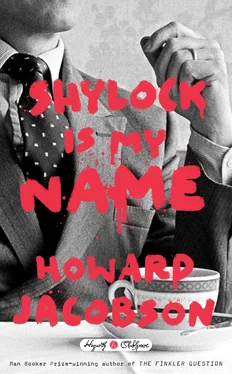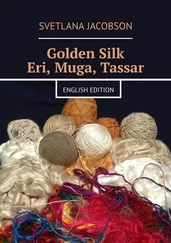Soon D’Anton became a regular visitor, sometimes staying after the rest of the weekend guests had gone home. They found comfort in each other’s melancholy. “You must think it’s ridiculous me living in all this splendour and still being sad,” she said.
“Not at all,” he answered, shaking his head. “I import beautiful objects from Japan, Grenada, Malibu, Mauritius and Bali, and have a home in each, and yet I am sad in all of them.”
“Bali is one place I haven’t yet been to,” Plurabelle said. “What’s it like?”
“Sad.”
Plurabelle shook her head in sympathy. “I can imagine,” she said. Then, after a moment’s contemplation, she asked him, “Do you think it’s because we have too much?”
“We?”
“Us. You and I. People of our sort. The advantaged.”
“But are we the advantaged?” D’Anton asked. “For the love of money is the root of all evil: which while some coveted after, they have erred from the faith, and pierced themselves through with many sorrows.”
“That’s so beautiful,” Plurabelle said. “And so true. It makes me want to cry. Paulo Coelho often makes me want to cry.”
“A greater man than Paulo Coelho said that,” D’Anton surprised her by saying. She didn’t know there was a greater man than Paulo Coelho.
“Nelson Mandela?”
“St. Paul.”
“So would we be less pierced with sorrows if we gave all we have to the poor?”
He didn’t know but said he sometimes asked himself whether the sadness problem, for him anyway, wasn’t money but modernity. “Do you never feel,” he asked her, “that you are too modern?”
Plurabelle liked that idea. “ Too modern— yes, you’re right,” she said. “Too modern. I have often felt that, yes I have, though until now I didn’t know I’d felt it. Too modern — yes, of course.” Then she had a thought. “But that doesn’t explain,” she said, “why Aborigines and American Indians always look sad on the Discovery Channel. They can hardly be called modern.”
“No, but that’s a different kind of sadness, isn’t it. The cause of their sadness is that they have been made abject. It’s been done to them. They are sad because they’re victims.”
Plurabelle remembered seeing photographs of South American tribesmen in colour supplements. They looked thousands of years old. Maoris too. And Pygmies. And Pashtun tribesmen. Why were they all sad, she wondered.
“Again, they have been exploited and made abject.”
“And Jews? They’re old.”
He was less comfortable about Jews. But offered to put his mind, or at least St. Paul’s mind (for he was a confirmed Paulinist), to their sadness. “I’d say they are made abject by their own will,” he declared at last. “They are neither modern nor victims. They have chosen to look the way they do.”
“Why have they done that?”
“Whether it’s a flaw or a stratagem I cannot say, but they have always put themselves at the centre of every drama, human or theological. I think of it as a political sadness. The glue of self-pity is very strong. As is emotional blackmail.”
Plurabelle furrowed her lovely brow. She wanted this conversation never to stop, testing as it was. “So they don’t count, is what you’re saying?”
“In my view they don’t, no.”
Plurabelle’s expression was suddenly relieved of its customary dejection. “Oh yes they do,” she laughed. “That’s all they do. They just sit and count…and count…and count…”
She was so pleased by this that she skipped like a little girl.
“I hope you don’t think I mean anything unpleasant,” she remembered to say.
D’Anton assured her that he didn’t.
She clapped her small hands in relief.
He thought how pretty she was when she was skittish. Inflamed around the mouth, as though she had a perpetual cold sore, and disconcertingly wide-eyed, which made it difficult for her to look straight ahead, but that could be said of all the women in the Golden Triangle. And she had a girlish expectancy which they didn’t. A desire for happiness shot through with an expectancy that she would never find it. He almost wished he could feel romantically about her.
She thought the same about him. Such a pity.
But the absence of romantic feeling made it possible for them to talk freely to each other, or at least for her to talk freely to him. She told him, with clever illustrative imitations of their mannerisms, about the would-be lovers who came and went in her real life, as opposed to those who were found for her by the production company to appear with her on television. Oh God, they wearied her, each thinking that the way to reach her was to spoil her or to flatter her, this one bringing her a Hermès Birkin bag the colour of the lipstick he’d been told she always wore, that one bearing a Guerlain lipstick case made of Swarovski crystals and a solitary diamond, the lipstick itself the colour of what researchers had told him was her favourite handbag. Did they think she was an object to be won by empty words and cash? She even showed him the handbag and the lipstick. What did he think?
He said he thought she should wear them together.
She told him that she’d come to that same conclusion herself.
They both laughed.
“But this isn’t who I am,” she said.
They both laughed again.
He became installed in her house, like a steward or confessor. When he wasn’t popping over to Japan to look at paperweights he didn’t seem to have much to do. “I pay people,” he explained. There was a prematurely retired air about him. On occasions, she would have friends around to listen to him talk about the exquisite things he imported and about beauty in general. In no time at all he was indispensable to her — handsome, sad, chivalric, unavailable, and somehow uncontaminated. It was as though he made clean every space he walked through, just by walking through it.
How long will a man lie i’ th’ earth ere he rot?
And a woman? Will she not rot even sooner?
Shylock, broken-hearted, beloved husband of Leah, feared so. The skin so much finer, the bones so much more fragile.
It was in order to delay the process, to keep her alive to herself as well as to him, that he visited her grave every morning, taking her violets or forget-me-nots, talking to her, listening to her, exactly as he had when she’d lived. He breakfasted in her company, a flask of Turkish coffee — she loved the smell of coffee — and a cheese panino wrapped in a linen handkerchief. He wasn’t careful to avoid crumbs falling on to her. It was almost like feeding her. And he did feed her, in another sense, selective gossip about the goings-on of their friends, sustaining her with news of Jessica. The latter more selective still: only the best things, how womanly she was becoming, how like her mother. Some mornings, when he thought it advisable to spare her the details of his business affairs altogether — the catastrophe in waiting, the threat of destitution hanging over him — he read to her. Not about Jacob and his sheep, nor about Laban and Hagar and the prophet Daniel. Those references he reserved for the Gentiles, knowing how troubling they found Bible stories issuing from the mouth of a Jew. Their actual reading, and they had read together most evenings, was much wider. They too could quote Virgil and Ovid, knew who Scylla and Charybdis were, and discussed Pythagoras’ philosophy of the soul. To prevent Leah from freezing over he read Petrarch to her, and Boccaccio. Also, as time went by, Philip Sidney’s Arcadia, Thomas Nashe’s The Unfortunate Traveller , as well as Edmund Spenser’s “Epithalamion.” Eventually he would progress to Dr. Johnson, Wordsworth, Dickens, Dostoevsky, the great novelists of the fag-end of the Austro-Hungarian Empire, and ditto of the American. It was important he kept Leah informed and didn’t allow her to grow bored. She too had always had a taste for the lyrical, the sarcastic, and some days even the preposterous. “Read me the comedy about the person who’s made to think he’s vermin,” she’d say. “Do you mean Metamorphosis ?” “No, my love, Mein Kampf .” And they would laugh together like demons.
Читать дальше












